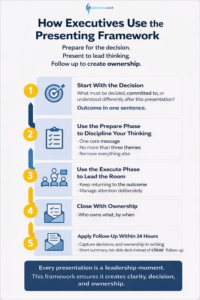Sterke emoties zijn het probleem niet! Je Frame is dat wel. Verander het!

Een praktische gids om je perspectief te veranderen
Emoties zijn geen zwakheden - het zijn gegevens. Ze laten zien wat belangrijk is, wat risico loopt en waar groei mogelijk is. Toch worden sterke emoties zoals woede, angst of verdriet op veel werkplekken, vooral in omgevingen met hoge druk of prestatiegerichtheid, vaak gezien als iets dat je moet beheersen of vermijden.
Neem dit voorbeeld: een senior operations manager voelt zich boos na een teamvergadering waar deadlines blijven uitlopen. Zijn instinct is om de emotie te onderdrukken - “professionals worden immers niet emotioneel”. Maar als we deze reactie in coaching uitwerken, blijkt dat de boosheid niet over de vertraging zelf gaat. Het gaat om het gevoel dat de verantwoordelijkheid is afgenomen en dat de normen van het team aan het verslappen zijn. Zodra hij de emotie herkadert, verandert de energie - boosheid wordt duidelijkheid en frustratie wordt een constructief gesprek over eigenaarschap.
Herdefiniëring betekent vanuit een ander perspectief naar een situatie kijken - de lens verschuiven waardoor we interpreteren wat er gebeurt. In plaats van te reageren op het eerste emotionele signaal, pauzeren we, zetten we een stap terug en stellen we de vraag: Wat kan dit nog meer betekenen? Wat kan ik ervan leren? In coaching helpt reframen mensen om van “waarom overkomt mij dit?” naar “wat kan dit mij leren?” te gaan. Het verandert emotie in inzicht en helpt leiders keuzes te maken die zowel gegrond als groeigericht zijn.
In een VUCA-wereld - volatiel, onzeker, complex en dubbelzinnig - dit vermogen is niet optioneel. Elke dag worden leiders geconfronteerd met verrassingen, tegenslagen en druk die van nature sterke emoties oproepen. Volatiliteit roept angst op, onzekerheid wakkert twijfel aan, complexiteit overweldigt en dubbelzinnigheid frustreert. Het verschil tussen reageren en herkaderen bepaalt of je in een stressspiraal terechtkomt of leiderschap gaat tonen. Reframen zet emotionele reacties om in strategisch bewustzijn - het is hoe leiders stabiliteit creëren voor zichzelf en hun teams wanneer de omgeving geen stabiliteit biedt.
Als coach en leiderschapsontwikkelaar heb ik dit patroon herhaaldelijk gezien. Sterke emoties kunnen, wanneer ze begrepen en opnieuw gekaderd worden, veranderen in bronnen van kracht en leren. Ze verbinden ons met onze waarden, scherpen ons bewustzijn aan en maken ons effectiever als leiders en mensen. In dit artikel deel ik praktische manieren om sterke emoties herkaderen - om reactiviteit om te zetten in reflectie, en reflectie in groei.
Herkennen en erkennen
De eerste stap is eenvoudig, maar zelden gemakkelijk: erken wat je voelt. De meeste leiders zijn getraind om kalm en rationeel te blijven - maar het onderdrukken van emoties maakt ze na verloop van tijd alleen maar luider. Neem in plaats daarvan even de tijd om te benoemen wat er gebeurt: “Ik voel me gefrustreerd.” “Ik voel me angstig.” “Ik voel me in de steek gelaten.” Je emotie benoemen betekent niet dat je de controle verliest - het betekent dat je je eigen gegevens begint te begrijpen. Dit zelfbewustzijn is de basis van emotionele intelligentie en de eerste stap naar transformatie.
Beoefen mindfulness in het moment
Mindfulness helpt om ruimte te creëren tussen wat je voelt en hoe je handelt. Het gaat er niet om je geest leeg te maken - het gaat erom dat je iets opmerkt. Adem, pauzeer of maak een korte wandeling voordat je reageert. In mijn coachingsessies moedig ik leiders vaak aan om een eenvoudige mentale cue te gebruiken: Pauzeer. Adem. Observeer. Kies. Na verloop van tijd helpt deze kleine discipline je om te reageren vanuit helderheid in plaats van impulsiviteit - een essentiële vaardigheid in een VUCA-wereld waar elke reactie door teams en systemen heen gaat.
Onderzoek de hoofdoorzaak
Sterke emoties geven vaak aan dat een waarde in twijfel wordt getrokken. Woede kan wijzen op onrechtvaardigheid, angst kan wijzen op risico's, verdriet kan wijzen op verlies of een verkeerde afstemming. Onderzoek de oorsprong van deze emoties in plaats van ze te veroordelen: Welke behoefte of waarde staat er op het spel? Welk verhaal vertel ik mezelf over deze situatie? Wat bescherm ik, of waar ben ik bang voor om te verliezen? Deze reflectie verschuift je energie van reageren naar leren - en helpt je te identificeren wat er echt moet veranderen.
Daag het verhaal achter de emotie uit
Als je de emotie ziet, onderzoek dan het verhaal dat eraan vastzit. Vraag jezelf af: Is deze overtuiging feitelijk of verondersteld? Wat is een andere mogelijke interpretatie? Welk bewijs heb ik echt? Reframen begint hier - niet door emoties te ontkennen, maar door het verhaal dat ze voedt opnieuw te bekijken. Dit is waar coachingsgesprekken vaak tot doorbraken leiden: wanneer leiders zich realiseren dat ze hebben gereageerd op een aanname in plaats van op de realiteit.
Andere perspectieven zoeken
Emoties kunnen onze lens vernauwen; verbinding maakt hem breder. Praat met iemand die je vertrouwt - een collega, coach of teamlid - en onderzoek hoe zij de situatie zien. Luisteren naar verschillende perspectieven helpt niet alleen om emoties te reguleren, maar vergroot ook het begrip en de empathie. In teams creëert deze praktijk psychologische veiligheid en bouwt een cultuur op waarin reflectie de plaats inneemt van schuld.
Cultiveer emotionele intelligentie
Sterke emoties zijn het oefenterrein voor emotionele intelligentie (EQ). EQ gaat niet over altijd kalm blijven - het gaat over het begrijpen, integreren en gebruiken van emoties om betere beslissingen te nemen. Leiders met een hoog EQ verbergen emoties niet; ze gebruiken ze verstandig om de communicatie te versterken, vertrouwen op te bouwen en onder druk geconcentreerd te blijven. Zoals het onderzoek van Daniel Goleman en de studies van Harvard Business Review bevestigen, behoren zelfbewustzijn en emotionele regulatie tot de topvoorspellers van leiderschapseffectiviteit - meer dan technische expertise of IQ.
Zet emotie om in actie of creatie
Emotie is energie. De sleutel is om het te sturen. Als je ze bewust gebruikt, wakkert ze creativiteit, moed en veerkracht aan. Schrijf, schilder, oefen of brainstorm over oplossingen - doe iets dat emotie omzet in beweging. In mijn workshops nodig ik leiders vaak uit om emoties te uiten door middel van metaforen, tekeningen of verhalen - het is een verrassend krachtige manier om gevoelens te verwerken en toegang te krijgen tot dieper inzicht.
Beoefen zelfzorg en compassie
Sterke emoties vragen energie. Die energie terugkrijgen is een deel van het werk. Slaap goed, blijf actief, maak contact met mensen die je opbeuren en beoefen compassie met jezelf. Leiders die zelfzorg verwaarlozen, verliezen uiteindelijk hun vermogen om ruimte te houden voor anderen. Emotionele veerkracht begint met zelfvriendelijkheid, niet met zelfkritiek.
Van reactie naar reflectie - De Leadership Edge
In een VUCA-wereld - volatiel, onzeker, complex en ambigu - hebben leiders die emoties kunnen herkaderen een echt voordeel. Ze navigeren door turbulentie zonder zichzelf te verliezen. Ze zetten tegenslagen om in leren en conflicten in verbinding. Dit vermogen om te pauzeren, te reflecteren en te herkaderen noem ik leiden vanuit bewustzijn - een vaardigheid die leiders met beide benen op de grond houdt wanneer de omgeving dat niet is.
Reflectie voor leiders
Welke sterke emotie heeft zich onlangs bij jou aangediend - en wat wil die je misschien vertellen? De boodschap achter het gevoel is vaak de sleutel tot je volgende stap in groei.
Werk samen met mij
In mijn coachings- en leiderschapsprogramma's breng ik dit onderwerp regelmatig op een heel praktische, ervaringsgerichte manier naar voren - want emotioneel bewustzijn leer je niet uit een boek; je leert het door te doen, te reflecteren en het opnieuw te proberen. Als dit resoneert met jou of je team, laten we dan eens praten. Samen kunnen we sterke emoties omzetten in sterker leiderschap - door bewustzijn, eigenaarschap en duurzame resultaten te creëren.




